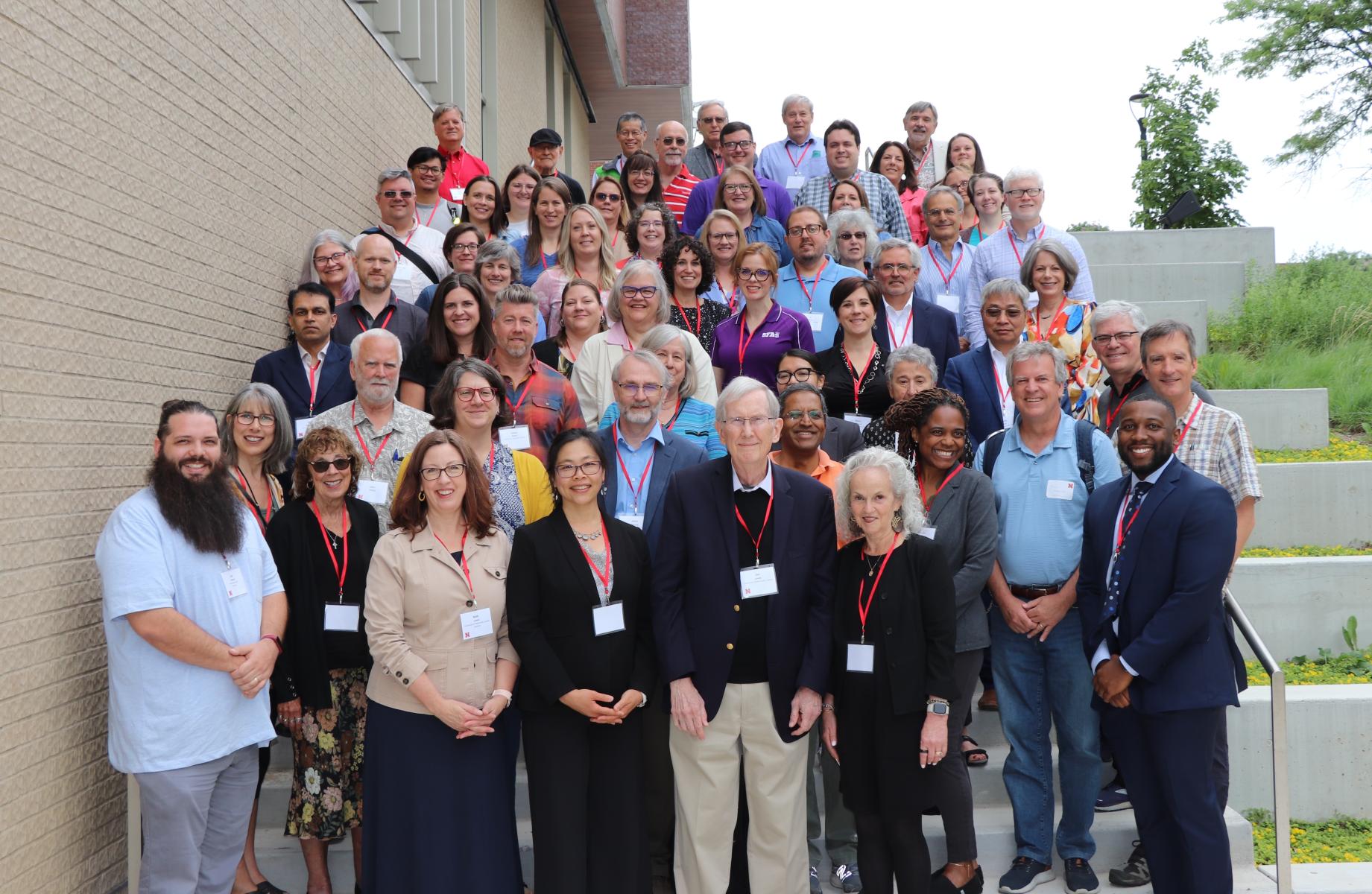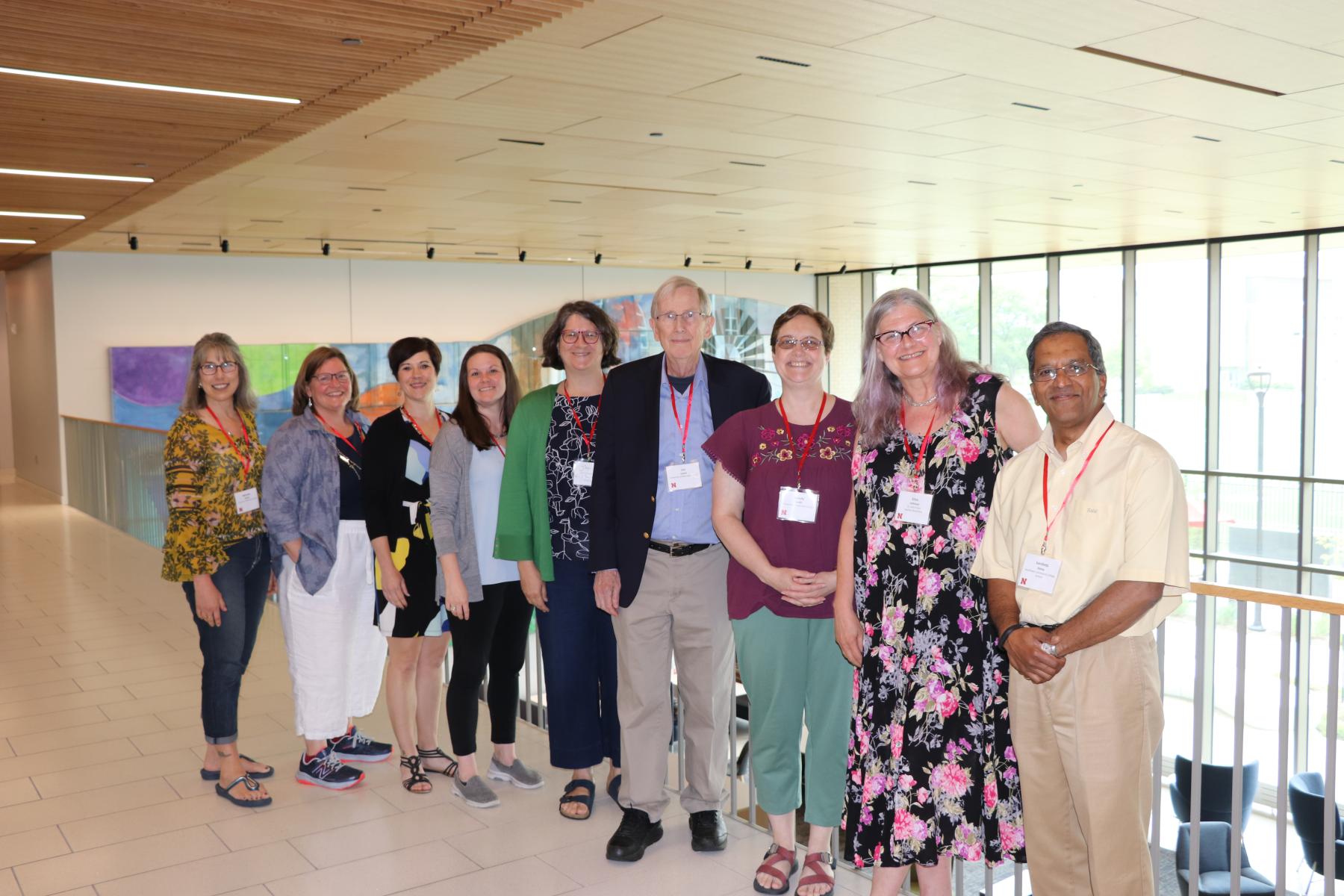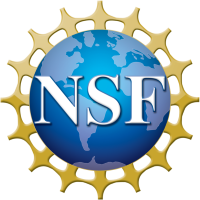Content
JimFest was a success! Thank you to all participants, speakers, and moderators for your contributions.

What, where, and for what purpose is the mathematics in mathematics teacher education?
A conference in honor of W. James Lewis
8:55 am Thursday May 30 - Saturday June 1, 2024 noon
Lincoln, Nebraska
- Thursday May 30: Towards a Fully Inclusive Profession
- Friday May 31: Reflecting on the Mathematical Education of Teachers
- Saturday June 1: Moving Towards Excellence
Conference products

Conference photo

Nebraska alum at JimFest
We have limited funding available for lodging and partial travel to approximately 40 participants. Our priorities include encouraging participation by faculty at Minority Serving Institutions (MSIs), and by teachers/administrators in high-need districts. We also prioritize those who participate in the conference as part of a team who can work together to affect change locally based on outcomes and findings from the conference. Such a team may include, for example, a PK12 teacher and a PK12 administrator from the same district, plus a teacher educator and a mathematician from a partnering university. We encourage participation from MSIs and high-need districts regardless of whether you are applying individually or as a team. Please note that while we can support lodging and travel, there are limitations on what we can use our grant funding for. Therefore we ask all participants to pay the registration fee. Please complete the form linked above to apply for funding.
Review of applications for funding begins May 1. We will accept funding applications through May 10.
Note that to apply for funding, you will need to register for the event. There are different options for payment, including an "invoice". If you select this option, you will not be billed until later. If you select this option, you will be required to confirm or withdraw your registration by 5pm CDT on May 15.
Questions and issues with registration should be directed to Lisa Maupin.
Organizing Committee
Yvonne Lai, Allan Donsig, Elizabeth Lewis, Mark Walker, Judy Walker
Featured Keynote and Panels
Registration begins at 8:30am on Thursday May 30. The first session begins 8:55 am on Thursday May 30 and the conference concludes at noon on Saturday June 1.
Keynote Address
Deborah Loewenberg Ball
University of Michigan
Approaches to Mathematical Sciences in K-16
Ben Ford
Sonoma State University
Ursula Nguyen
University of Nebraska-Lincoln
Glenn Stevens
Boston University
Designing Mathematical Experiences and Programs for Teaching
Sybilla Beckmann
University of Georgia
Denise Spangler
University of Georgia
Marilyn E. Strutchens
Auburn University
Framing our Work
Jinfa Cai
University of Delaware
Charles E. Wilkes II
San Diego State University
Grounding our Work: Voices from the Field
Jill Edgren
Wood River Rural Schools (Wood River, Nebraska)
Paula Jakopovic
University of Nebraska-Omaha
Daniel Schaben
Lexington Public Schools (Lexington, Nebraska)
Improvement through Networks and Community
Allan Donsig
University of Nebraska-Lincoln
W. Gary Martin
Auburn University
Talitha Washington
Clark Atlanta University
Leading a Mathematical Education of Teachers
Gail Burrill
Michigan State University
Joan Ferrini-Mundy
University of Maine
Matt Larson
Lincoln Public Schools
Featured Moderators
Featured Moderators
Elizabeth A. Burroughs
Montana State University
John Ewing
Math for America (retired)
Karen Marrongelle
National Science Foundation
William McCallum
Illustrative Mathematics
Charles "Charlie" Steinhorn
Conference Board of the Mathematical Sciences
Lee Zia
National Science Foundation

JimFest is supported by the National Science Foundation #DUE-2408993. Additional funding is provided by UNL's Center for Science, Mathematics, and Computer Education, College of Arts and Sciences, College of Education and Human Sciences, Department of Mathematics, Department of Teaching, Learning, and Teacher Education, and Office of Research and Economic Development. Views expressed are those of participants and not necessarily those of the NSF, the University of Nebraska-Lincoln, or any unit of the University of Nebraska-Lincoln.